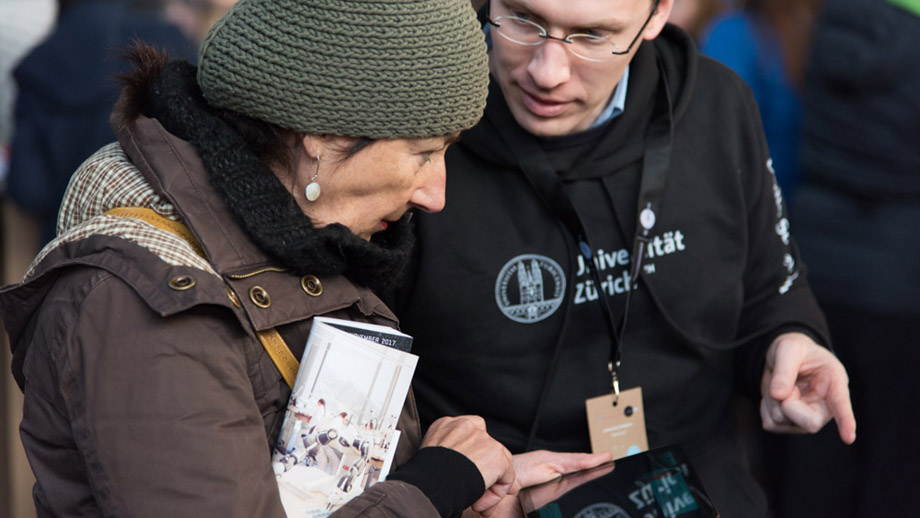How Digitalization Changes Medicine

Nobody knows exactly how many people in Switzerland suffer from multiple sclerosis (MS) and what their daily lives and the lives of those close to them are like. This is what the Swiss Multiple Sclerosis Society wants to change by setting up an MS registry to better understand the states of health of those affected as well as their life circumstances. To achieve this, MS patients are asked to keep an electronic diary on an easy-to-use online platform about their health, the pain they experience, and the restrictions in their daily lives, among other things.
This information is intended to shed light on the various burdens that accompany MS, both in patients’ private as well as professional lives. Based on this data, which is provided voluntarily, experts can develop measures for improving the quality of life of MS patients and for the treatment of MS.
The MS registry is run by the University of Zurich’s Epidemiology, Biostatistics and Prevention Institute (EBPI). In the main exhibition of Digital Day in Zurich Main Station, researchers from the EBPI will present this registry and explain how its data can be used to improve the lives of MS patients.
Coached by an app
At UZH’s stand devoted to health, visitors can also find out how an app may help them to change their own lives. Psychologists and IT experts at UZH have worked together to develop PEACH, an app that uses targeted interventions to support people in reducing social anxiety, for example, or changing certain aspects of their lives, such as eating habits.

Researchers from UZH and ETH Zurich will hold a series of short talks and lab tours during lunchtime or in the evening to explain how digitalization is used in research and technology. The Institute of Forensic Medicine, for example, will demonstrate how forensic experts use digital reconstruction, VR goggles and imaging techniques to investigate crimes and accidents.
Artificial intelligence in the emergency room
In the emergency room of the UniversityHospital Zurich’s Department of Neurology, large amounts of medical data are collected several times per second. A presentation will shed light on how this data can be analyzed using artificial intelligence and machine learning, for example to recognize signs of possible epileptic seizures or circulatory problems at an early stage.
Virtual reality also supports physiologists in investigating kidneys, for example. State-of-the-art imaging techniques make it possible to capture all of the branches in the blood vessel system of kidneys in high resolution and create a digital 3D model. This allows researchers to observe the kidney in a virtual three-dimensional space using VR goggles and use this model to simulate physical and molecular processes. Researchers can thus gain a better understanding of the complex processes that take place inside the organ. The presentation will also offer insights into how to create a digital 3D model of the kidney of a mouse.

Augmented reality to prepare for surgery
Digital Day also offers visitors the chance to go on a tour of the lab of the Translational Neuromodeling Unit and, through a simple experiment, learn how the diagnosis and treatment of psychosomatic disorders can be improved through mathematical models.
At Balgrist University Hospital, visitors can find out how surgery is planned and how surgeons use augmented reality and 3D printing in their meticulous preparations for orthopedic operations. Augmented reality involves superimposing images or videos with computer-generated information or digital objects. These then provide surgeons with additional information during the operations.